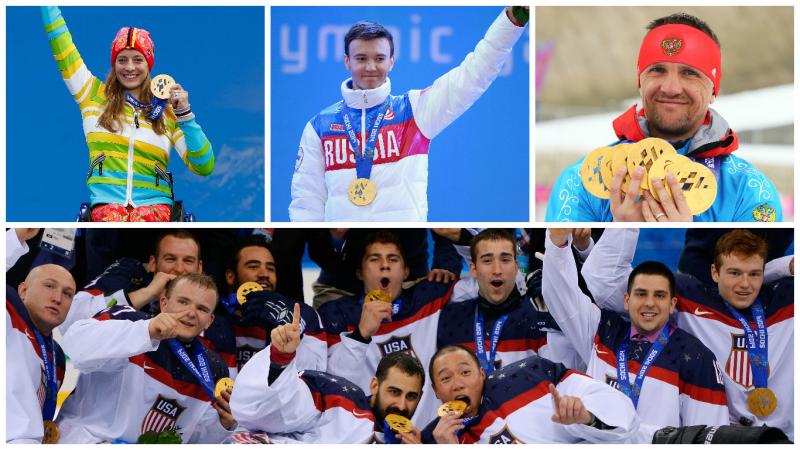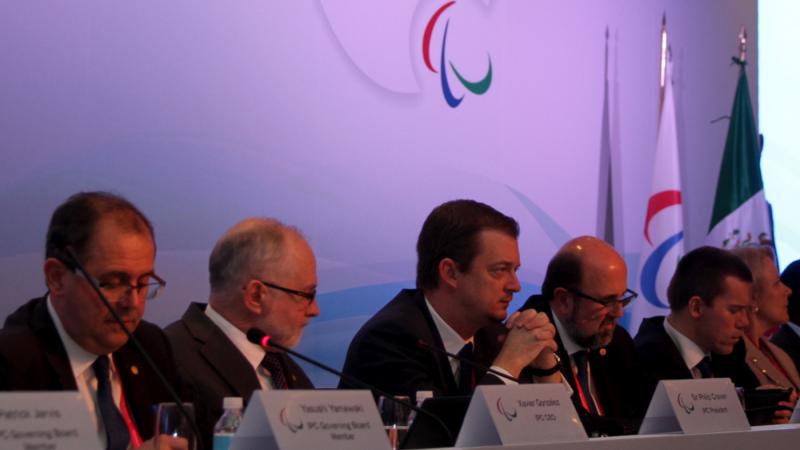UNESCO Charter emphasises support for people with impairments
Revised International Charter for Physical Education, Physical Activity and Sport can be used by National Paralympic Committees to secure more sport opportunities. 19 Nov 2015
Official logo of the International Paralympic Committee
UNESCO Member States have adopted a revised International Charter for Physical Education, Physical Activity and Sport recognising the importance of sport for development and peace and strongly emphasising support for people with impairments.
The adoption took place during the 38th session of the UNESCO General Conference, which met at the organisation’s headquarters from 3 to 18 November in Paris, France.
“The adoption of the revised Charter should mark a shift away from words towards action, from policy intent to implementation. It sets the tone for a new international sport policy debate, which should now focus on the exchange of good practice, education and training programmes, capacity development, and advocacy. This is also a strong recognition of physical education as a driver for promoting gender equality, social inclusion, non-discrimination and sustained dialogue in our societies” said UNESCO Director-General, Irina Bokova.
Dr. Cheri Blauwet, Chairperson of the International Paralympic Committee’s Medical Committee, said: "[…] Physical education, physical activity and sport contribute significantly to health benefits and outcomes for everyone, particularly individuals with disabilities. The Charter importantly elevates global awareness and recognition for this critical relationship. I would like to commend everyone who worked tirelessly in the drafting process for the revised Charter, and I fully support and encourage its implementation throughout the field of physical medicine and rehabilitation."
The Charter is important for the Paralympic Movement because National Paralympic Committees (NPCs) function in the context of the national sport and physical education system.
The updated Charter can be used by NPCs and their national partners to influence for improvements to sport, physical education and physical activity opportunities for people with impairments.
Based on the universal spirit of the original Charter adopted in 1978, and integrating the significant evolutions in the field of sport over the last 37 years, the revised Charter highlights the health benefits of physical activity, the inclusion of persons with impairments, the protection of children, the role of sport for development and peace, as well as the need to protect the integrity of sport from doping, violence, manipulation and corruption.
The original Charter, which was amended in 1991, was the first rights-based document to state that “the practice of physical education and sport is a fundamental right for all”.
The adoption of this document represents a renewed commitment of the international community to promote sport as a catalyst for peace and development, and to reinforce quality physical education. The revised International Charter for Physical Education, Physical Activity and Sport provides a framework that orients the protection of the integrity of sport and supports broader policies in favour of grassroots sport.
The revision of the Charter involved experts and practitioners from governments, sports organisations, academia and Non-Governmental Organisations, including the IPC. This modernised version contains input from the Intergovernmental Committee for Physical Education and Sport (CIGEPS) and its Permanent Consultative Council (PCC), as well as UNESCO’s Executive Board.
It is a follow-up to the Declaration of Berlin that was adopted by 600 participants from 121 countries, as an outcome of the 5th World Conference of Sport Ministers (MINEPS V).
More information on the revised International Charter of Physical Education, Physical Activity and Sport is available at UNESCO’s website.

 Facebook
Facebook
 Instagram
Instagram
 Twitter
Twitter
 Youtube
Youtube
 TikTok
TikTok
 Newsletter Subscribe
Newsletter Subscribe








